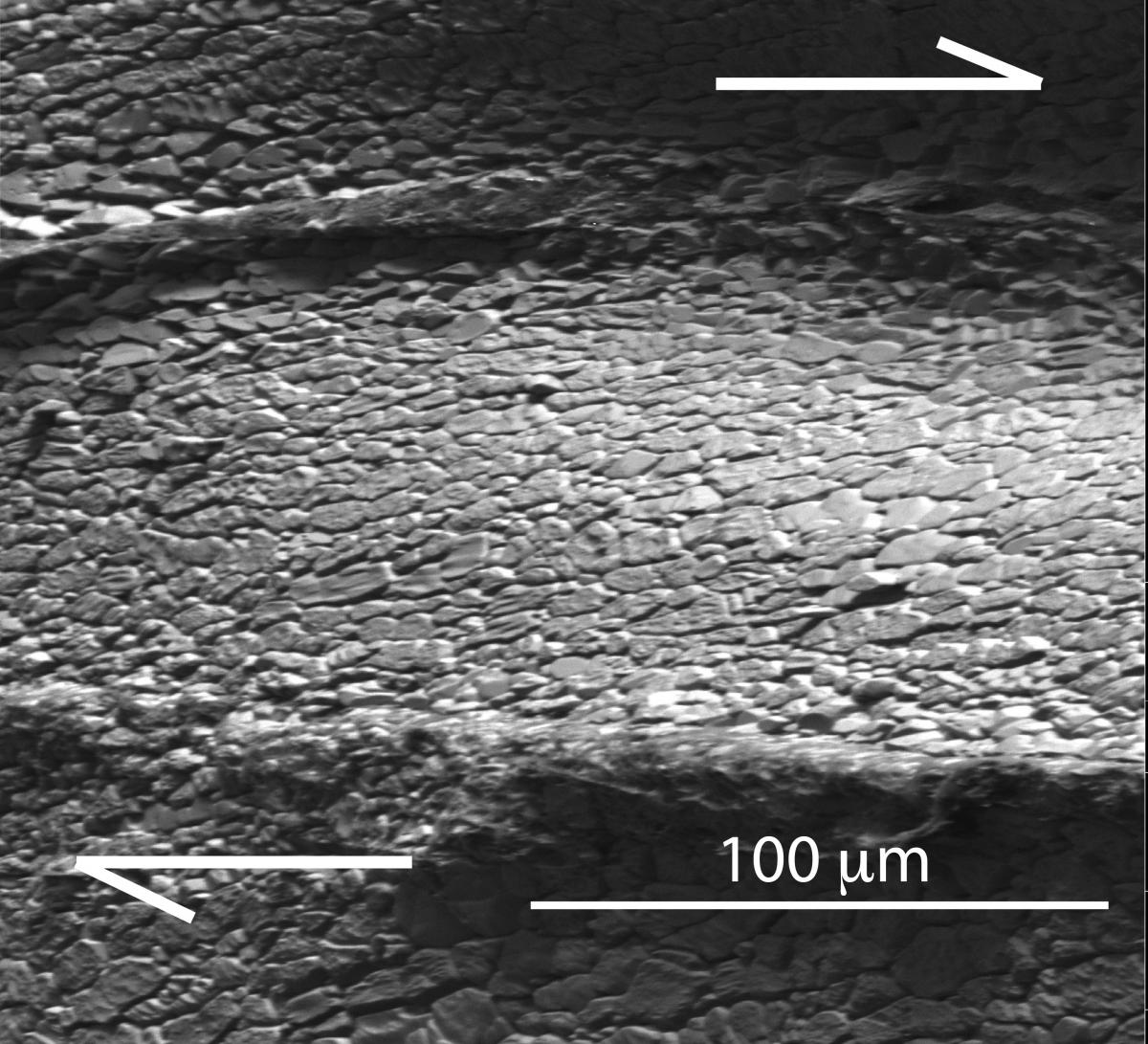Rocks are viscous during earthquakes
During an earthquake, faults slide on ultra-thin layers of solid, but viscous, rock. This is the main outcome of a study recently published in Nature Geoscience and led by Durham University (UK), with the collaboration of the Department of Geosciences of the University of Padua and the CNRS and Université de Montpellier (France).
The study, based on the combination of laboratory rock deformation at seismic slip conditions and advanced electronic microscopy, demonstrated how rocks can ‘flow’ on fault planes during an earthquake.

As explained by Dr. Telemaco Tesei, researcher at the Department of Geosciences and co-author of the paper, "during an earthquake, elevated pressures and extreme deformation rates lead to sudden heating of rocks, which, in turn, cause their mechanical weakening. Understanding these weakening processes is of paramount importance to understand the physics of earthquake slip. However, even if some of these processes, such as frictional melting, are well known, others remain elusive. In our study, we observed a process of rock deformation, previously unknown in rocks at seismic slip conditions.”
“The sliding processes associated with an earthquake are classically considered a ‘brittle’ phenomenon, i.e. dominated by the fragmentation of materials on the surface of seismic faults. With diagnostic, but often elusive, microstructures we have documented how, during the propagation of an earthquake, the sliding between rocks can occur via a ductile flow ('superplasticity') in a variety of materials representative of the Earth's composition", adds Dr. Giacomo Pozzi, researcher at the Istituto Nazionale di Geofisica e Vulcanologia in Rome (Italy) and first author of the paper.
Among the main future applications of this study, is the improvement of numerical models of the earthquake cycle and the opportunity to learn more about the physics of materials deformed at extreme conditions.
Coseismic fault lubrication by viscous deformation
(Paper on Nature Geoscience)





